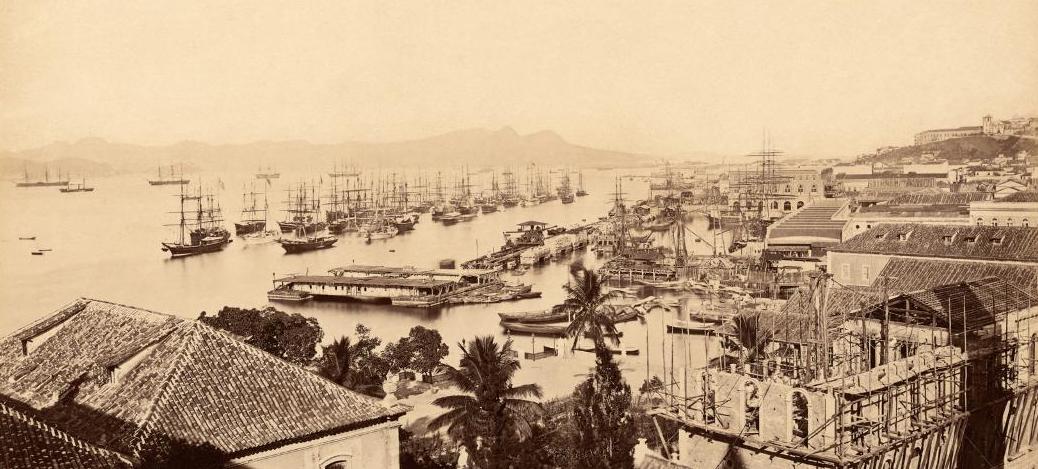Rewriting the Black Death
hosted by Chris Gratien
| For years, the historiography of the 14th-century Black Death produced more questions than answers. Then, roughly a decade ago, genomic research confirmed that the medieval Black Death was caused by the same bacteria, Yersinia pestis, which causes the modern bubonic plague. This settled the burning question of precisely which disease had caused the pandemic that produced colossal mortality in many parts of Europe, Asia, and North Africa. In this episode, we speak to Monica H. Green, whose recent work has raised new questions about the Black Death by showing that the chronology of the Black Death was incomplete. As she explains, prior outbreaks of plague in 13th-century Asia occurred at the edges of the ascendant Mongol Empire, roughly a century before the plague arrived in Western Europe. In our conversation, we learn how Green uncovered the new story of the "four Black Deaths" and in doing so, explore the historiography of the Black Death and how genetics, archaeology, and a fresh approach to textual sources have brought us to a deeper understand of one of history's deadliest pandemics.

 | Click for RSS Feed | 
|

|
For years, the historiography of the 14th-century Black Death produced more questions than answers. Then, roughly a decade ago, genomic research confirmed that the medieval Black Death was caused by the same bacteria, Yersinia pestis, which causes the modern bubonic plague. This settled the burning question of precisely which disease had caused the pandemic that produced colossal mortality in many parts of Europe, Asia, and North Africa. In this episode, we speak to Monica H. Green, whose recent work has raised new questions about the Black Death by showing that the chronology of the Black Death was incomplete. As she explains, prior outbreaks of plague in 13th-century Asia occurred at the edges of the ascendant Mongol Empire, roughly a century before the plague arrived in Western Europe. In our conversation, we learn how Green uncovered the new story of the "four Black Deaths" and in doing so, explore the historiography of the Black Death and how genetics, archaeology, and a fresh approach to textual sources have brought us to a deeper understand of one of history's deadliest pandemics.
Click here for transcript.
Click here for transcript.
Contributor Bios
 |
Monica H. Green is a historian of medicine specializing on medieval medical history and global health. The author or editor of four books and numerous articles, Green works on the social and intellectual history of medicine of Europe while also pursuing new work that brings scientific findings on the histories of infectious diseases into dialogue with traditional historical sources. She is currently working on a book, The Black Death: A Global History, which proposes a redefined conception of the geography and the chronology of the late medieval plague pandemic known as the Black Death. A second book-in-progress focuses on the impact of the medical translations (Arabic-into-Latin) of the 11th-century merchant-turned-monk, Constantinus Africanus. Together with Nükhet Varlık and Tunahan Durmaz, she is engaged on a project, initially funded by the Lepage Center for History in the Public Interest, to make more sources on the history of plague in the Islamicate world available in English translation. |
 |
Chris Gratien is Assistant Professor of History at University of Virginia, where he teaches classes on global environmental history and the Middle East. His first monograph entitled The Unsettled Plain: An Environmental History of the Late Ottoman Frontier is forthcoming with Stanford University Press. |
Credits
Episode No. 512
Release Date: 26 August 2021
Recording Location: Phoenix, AZ / Charlottesville, VA
Sound production and transcript by Chris Gratien
Music: via Free Music Archive - A.A. Aalto, Chad Crouch, Aitua
Bibliography courtesy of Monica Green
Release Date: 26 August 2021
Recording Location: Phoenix, AZ / Charlottesville, VA
Sound production and transcript by Chris Gratien
Music: via Free Music Archive - A.A. Aalto, Chad Crouch, Aitua
Bibliography courtesy of Monica Green
Further Listening
 |
Joshua White, Zoe Griffith, Sara Nur Yıldız, Neelam Khoja | 486
12/28/20
|
The Making of the Islamic World
|
 |
Featured Guests | 455
3/19/20
|
Plague in the Ottoman World |
 |
Orhan Pamuk & Nükhet Varlık | 396
1/3/19
|
Imagining and Narrating Plague in the Ottoman World |
 |
Elise Burton | 324
7/15/17
|
Genetics and Nation-Building in the Middle East |
 |
Rudi Paul Lindner | 511
8/20/21
|
The Origins of Ottoman History |
 |
Harun Küçük | 456
3/25/20
|
Science in Early Modern Istanbul |
Select Bibliography
Barker, Hannah. “Laying the Corpses to Rest: Grain, Embargoes, and Yersinia pestis in the Black Sea, 1346-1348,” Speculum 96, no. 1 (January 2021), 97-126. *Pre-print deposited at BodoArXiv, 2 May 2020, https://osf.io/preprints/bodoarxiv/rqn8h/, version 1.
Fancy, Nahyan, and Monica H. Green. “Plague and the Fall of Baghdad (1258),” Medical History 65, no. 2 (April 2021), 157-177.
Green, Monica H. “Emerging Diseases, Re-emerging Histories,” Centaurus 62, no. 2 (2020), 238-251, part of a “Spotlight” issue, Histories of Epidemics in the Time of COVID-19
_____. “The Four Black Deaths,” American Historical Review 125, no. 5 (December 2020), 1600-1631; includes Supplemental Data, “Marmots and Their Plague Strains,” online only (https://academic.oup.com/ahr/article/125/5/1601/6040962).
Perry, David. “Did the Black Death Rampage Across the World a Century Earlier Than Previously Thought?,” Smithsonian Magazine, 03/25/2021, https://www.smithsonianmag.com/history/did-black-death-rampage-across-world-more-century-previously-thought-180977331/.
Qutḅ al-Shīrāzī. The Mongols in Iran: Quṭb al-Dīn al-Shīrāzī’s ‘Akhbār-i Moghūlān’, trans. and ed. George Lane (Abingdon: Routledge, 2018).
Roosen, Joris, and Monica H. Green, “The Mother of All Pandemics: The State of Black Death Research in the Era of COVID-19 – Bibliography,” [date accessed], https://drive.google.com/file/d/1x0D_dwyAwp9xi9sMCW5UvpGfEVH5J2ZA/view?usp=sharing.
Varlık, Nükhet. "Plague in the Mediterranean/Islamic World" [version 1 (CBE111.1a); status as of 2021/08/02: in revision], IsisCB Special Issue on Pandemics, edited by Neeraja Sankaran and Stephen P. Weldon, submitted on 2021/04/13. (https://drive.google.com/file/d/1n-G57l_8ZeBD1EweEHB5b9E64NxA5M0W).











Comments
Post a Comment
Due to an overwhelming amount of spam, we no longer read comments submitted to the blog.